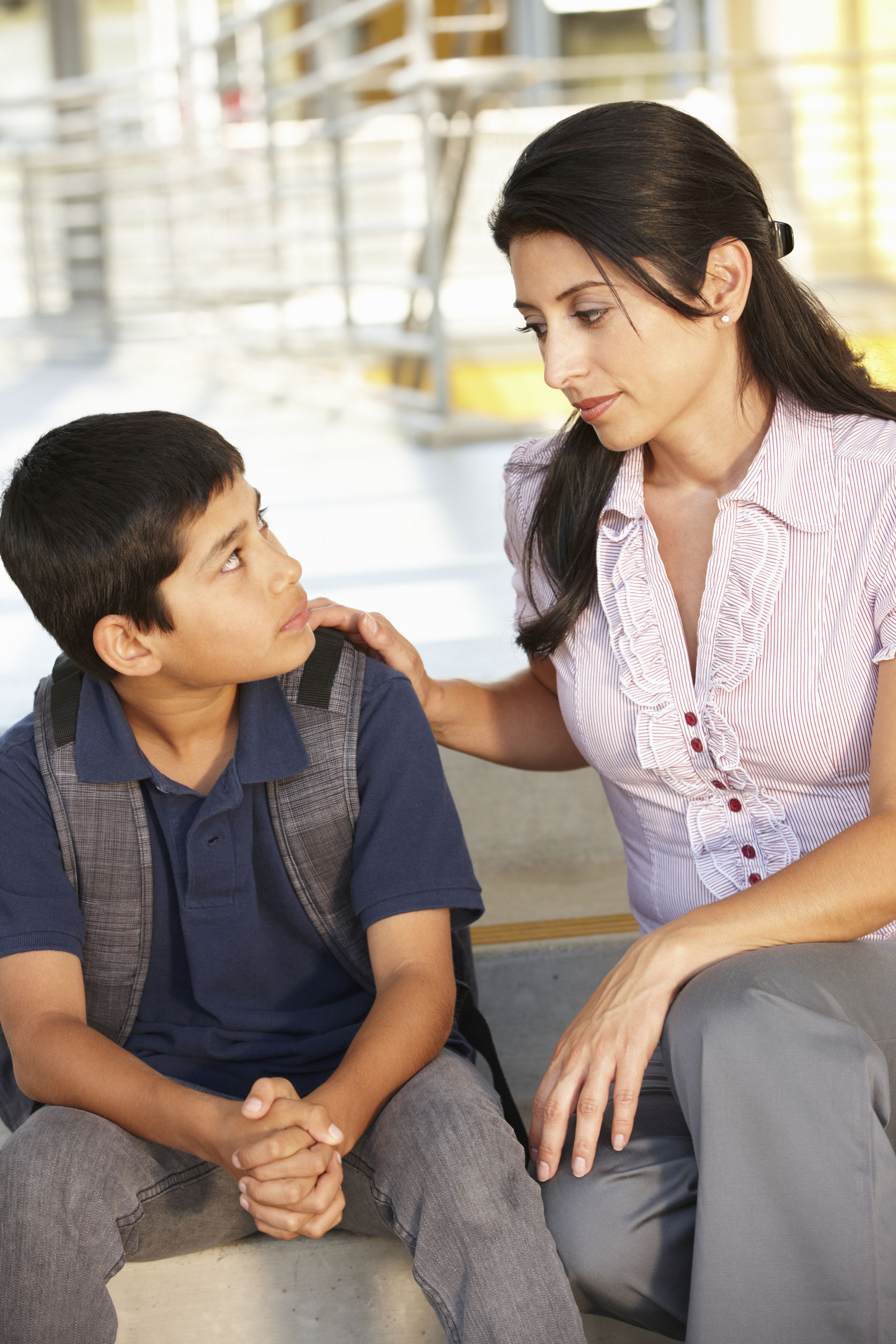 With the increased number of terror attacks that we are hearing about in the news, something that had once been a much rarer occurrence may feel like it is happening at an increasing rate. As parents, this means that there may be more instances where our children will be exposed to such news. Events such as terrorist attacks can be quite frightening and difficult for adults to grapple with, which can make the question of how to speak to your children about it feel all the more daunting. There is no single answer and it may still be a difficult conversation, but here are some things to think about when you have one of these conversations with your children.
With the increased number of terror attacks that we are hearing about in the news, something that had once been a much rarer occurrence may feel like it is happening at an increasing rate. As parents, this means that there may be more instances where our children will be exposed to such news. Events such as terrorist attacks can be quite frightening and difficult for adults to grapple with, which can make the question of how to speak to your children about it feel all the more daunting. There is no single answer and it may still be a difficult conversation, but here are some things to think about when you have one of these conversations with your children.
- Prepare yourself. Think about what you want to say to your child, what message you want to convey to them in the conversation, and then think about how you can get that message across to your child. For younger children, the message should be one that acknowledges that something bad happened but also reassures them there are many people out there who are working very hard to keep us safe. For older children it may be ok to talk more about the issues underlying the incident or terrorism in general, while still offering the reassuring and realistic message about the many people around the world who are in charge of keeping us all safe.
- Start with your child. Open up the conversation by finding out what your child knows about the situation and asking what questions they have about it. This allows you to get a sense of what they already know and ensures that you will not give them more information than they can handle. For example, a child may want to know if everyone is ok or was taken to the hospital on time, and once you have answered that question, he may thank you and go off to play or finish homework.
- Use developmentally appropriate language and material. The words you use and the amount of information you share may be different for each of your children, depending on their age and developmental level both in regards to intellect and emotional maturity. Think about this and plan ahead before speaking to each child.
- Be honest.It’s ok for children to see their parents upset, sad or angry about things. Children know when parents are being disingenuous with them so if you are feeling sad or scared, it’s ok to let them know that. It is, in fact, an opportunity to model the skill of “talking about your feelings” with them and for them to see you cope with those feelings. Seeing you label your feelings and talking with your children about how you cope with those feelings is an important emotional lesson. At the same time, make sure that you are able to cope well enough in the moment so that you do not overwhelm your child with your own feelings. If you do not feel able to have the conversation, ask your partner or another close family member if they can talk to your child, and make sure that you get the help and support you need as well.
- It is ok to say “I don’t know”.You may feel the need to have all the answers but it is ok not to. What is important is that you are open and honest with your children and that, if it is an ongoing situation, that they know you will keep them updated as the situation unfolds. To be in a place of not knowing can be very uncomfortable for both adults and children, but it is also an important lesson in how to cope with so many of life’s questions or events when our best answer may be “I don’t know.”
- Keep the conversation going. Sometimes, when we talk to children about a topic where we have prepared all of the answers to their potential questions, they respond to us with silence. Know that it is ok and they may need some more time to take it all in and that they may come back to you in an hour, a day or a week, ready to continue the conversation. Let your children know you are there to talk when they are ready and that once the conversation has been opened up, they can come back to it with you as often as they need.
- Show them you love them. Remember that we all inhabit many different worlds and that the first and most intimate world is that of the family. Make that a place of love and safety by not only telling your children with words the messages you want to communicate with them-be it “I love you” or “you are safe here” or “I am here when you’re ready”-but show them as well by spending time together and being there for them when they need it.
While it is important to note that many children will have some kind of reaction and questions surrounding a terrorist attack, it is also important to know that children are quite resilient and most will be ok, even if they seem shaken up at first. If you have any concerns about your children – if you notice a change in sleeping or eating patterns, in overall mood or in behavior at school, at home or with friends – you can consult with a child psychologist to help your child who may be struggling to cope with these matters.





